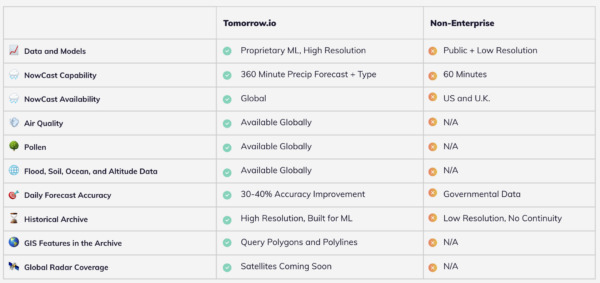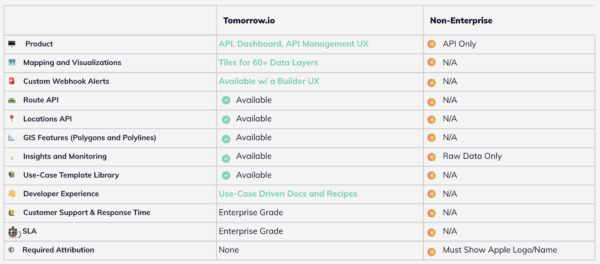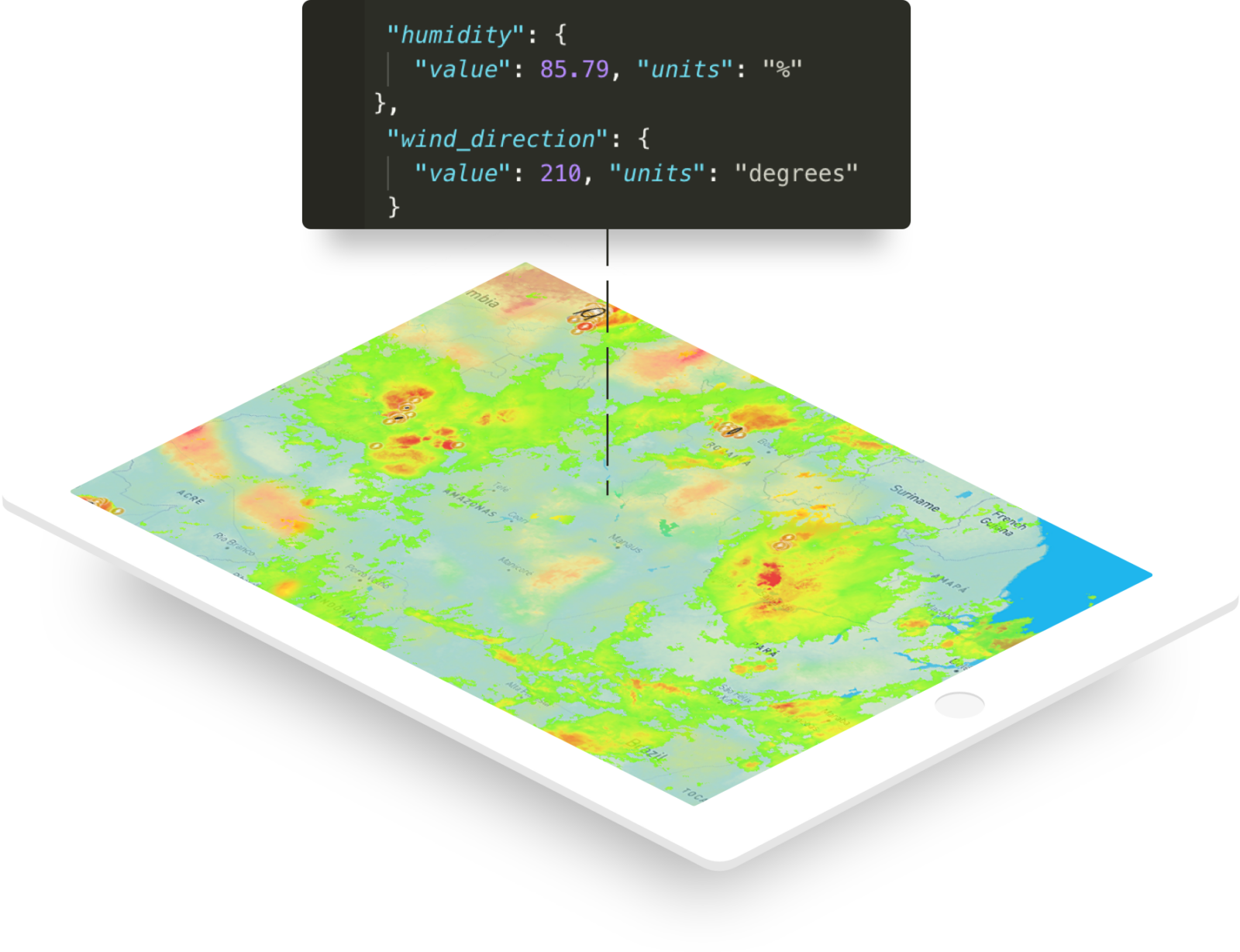In 2022, Apple announced the launch of WeatherKit—a new weather service that allows developers to create apps using Apple Weather data.
The news came a year after the company announced it would be shutting down its Dark Sky API and Dark Sky App at the end of that year.
As of January 1, 2023, users would need to find an alternative to Dark Sky API.
Though a timely replacement, we believe WeatherKit still leaves a gap in the market for enterprise-grade developers looking for solutions that require more than basic weather data.
That’s where Tomorrow.io can help.
This blog covers important information developers need to know and how to adapt to change. Plus, learn more about alternative options to Dark Sky API and WeatherKit.
The Sun Sets on Dark Sky API
In 2020, Apple acquired Dark Sky, the popular weather app and API that millions of Android users and developers had used for the previous four years.
Upon Dark Sky’s acquisition, the app’s features were incorporated into the preinstalled Apple Weather app on Apple iOS. A year later, API support for Dark Sky API users was discontinued.
Many popular apps, including Android weather apps Carrot and Clear Outside, now faced a big challenge. Where would they go for hyper-local forecasts and API support?
Apple’s WeatherKit replaces some of Dark Sky’s features, but not all.
What is WeatherKit?
WeatherKit, launched in June 2022, enables developers to integrate Apple Weather forecast data into their apps and Xcode Cloud.
Apple says it provides current weather, 10-day hourly forecasts, daily forecasts, and historical weather.
Apple’s plan was to transition the Dark Sky API’s paying customers to its new weather service, WeatherKit, where it would provide up to 500,000 API calls per month to members who are part of its Apple Developer Program membership during the beta period and beyond.
Who is WeatherKit for?
Currently, WeatherKit is available only to Apple Developer Program members and has specific usage requirements.
Websites and other platforms can use REST APIs, while compatible operating systems rely on Apple’s iOS:
- iOS 16
- iPadOS 16
- macOS 13
- tvOS 16
- watchOS 9
Given its technology and feature restrictions, WeatherKit is best for non-enterprise developers who are participating in Apple’s Developer Program.
See How an Enterprise-Level Alternative Compares.
WeatherKit Availability and Pricing
WeatherKit beta testers get up to 500,000 API calls a month, which is standard in the Apple Developer Program membership. Additional API calls will also be available for purchase.
Additional API calls will also be available for purchase when you have an Apple Developer Program membership. Here is a sample of their subscription plans:
- 500,000 calls/month: Included with membership
- 1 million calls/month: US$49.99
- 2 million calls/month: US$99.99
- 5 million calls/month: US$249.99
WeatherKit Alternatives: Using Tomorrow.io Weather API
Unlike WeatherKit, Tomorrow.io’s Weather API uses proprietary technology and advanced features to deliver hyper-local, minute-by-minute weather data that allow you to build fully customized projects.
Compared to WeatherKit, Tomorrow.io stands out in a number of key ways, both in our technology and feature set:
Technology
Tomorrow.io draws on a combination of traditional and proprietary sources to deliver high-resolution data and modeling for any location on the globe.
Compared to WeatherKit, Tomorrow.io’s Weather API offers more comprehensive, reliable, and globally available data, including 60+ possible weather data fields to get users the information they need.

Tomorrow.io continues to expand its data sets and is revolutionizing global forecasting by launching the world’s first constellation of commercially built weather-radar satellites.
So far in 2023, Tomorrow.io has launched two pathfinder satellites, Tomorrow-R1 and Tomorrow-R2, which are now orbiting Earth in a polar orbit, carrying Ka-band radar ideally suited for detecting precipitation and critical ocean parameters.
With initial calibration completed, both satellites are now entering their longer-term calibration and validation phase. This will pave the way for high-fidelity global precipitation measurements to be ingested into the Tomorrow.io weather intelligence platform.
Features
But data is only one part of the equation for enterprise-grade developers. Unlike WeatherKit, the Tomorrow.io Weather API also offers features you won’t find anywhere else, allowing you tobuild more innovative and scalable projects.

No matter your industry or use case, an enterprise-grade Weather API provides the data and features you need to take your project to the next level.
The Future of Weather Data Services
As high-impact weather events continue to present themselves in the world, app developers and business leaders will need access to robust, hyperlocal weather data that is specific to their needs.
Tomorrow.io’s Weather API stands to be the best alternative to the Dark Sky API in offering accurate weather data to support users in innovating applications or trying to mitigate weather impact.


